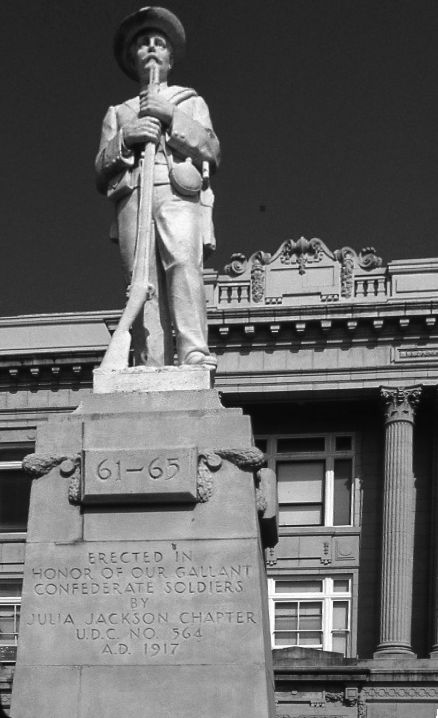In a free and democratic society, each generation is given the opportunity to choose which of their forbears’ institutions and memorials are worthy of passing on to their successors. Generations past held somewhat different values than we do, operated on different assumptions about the world, and were gifted with less knowledge on most every topic; there is no good argument for why their decisions should continue to bind us today. Americans should feel empowered to amend our constitutions, extend our conception of civil rights, add more states to the Union and more stars to the flag. We should also feel free to remove any memorials which no longer reflect our values, whenever those memorials are sustained and supported by the public.

Which brings us to the controversy of the day, whether we Americans are overdue to remove or relocate monuments dedicated to Confederate leaders and soldiers. For most people on the left, the answer is obviously in the affirmative. For too many on the right, the answer is obviously in the negative. For those undecided, I would like to address a few of the common arguments in favor of keeping the statues up.
Taking Down Monuments Erases Our History
No, it really doesn’t. We have not forgotten Benedict Arnold‘s key role in the Revolutionary War, serving on both sides of that conflict. We have not forgotten the achievements of John Wilkes Booth or Lee Harvey Oswald or Timothy McVeigh. Those who take up arms against the United States may be clearly remembered without being honored by those of us who hope to see the Union preserved for posterity. We need only our books and the willingness to read them.
Taking Down Monuments is a Slippery Slope
Not necessarily. Despite countless false equivalencies being drawn between Generals Lee and Washington, there is a relatively simple way to determine which monuments are worth keeping up. We might call it the “moral arc” test. All you have to do, when asking yourself how to vote on any given monument, is to carefully consider the following question: Did the person (or persons) honored by this monument serve to bend our moral universe towards justice? Founding Fathers will tend to pass that test, for those of us who consider the American experiment more successful than not. Anyone who distinguished themselves by fighting for the preservation of involuntary servitude or racial apartheid will surely not pass.
Taking Down Monuments Dishonors Those Who Served
This is literally true, at some level. The statue shown above (it stands to this day outside of the Bryan County Courthouse, in southern Oklahoma) was “erected in honor of our gallant Confederate soldiers” by its own terms. Is it possible to honor these soldiers as human beings who fought for their homeland without implicitly honoring the ignoble causes which motivated secession in the first place? With the exception of individual grave markers—which are not in contention here—I doubt it.
It is difficult to imagine how the (relatively few) African American residents of Bryan County might reasonably expect to find justice inside of that courthouse, having just walked past a monument dedicated to those who gave their lives in order to keep their ancestors in chains. Even if that county were entirely white, though, I would still hope the residents would see fit to spare themselves the ignominy of honoring the collective efforts of the anti-abolitionists. Honoring racial apartheid and white nationalism does nothing to enhance personal character, and those thus raised will find it harder to move about in a diverse society such as our own. The children of Durant deserve better.
